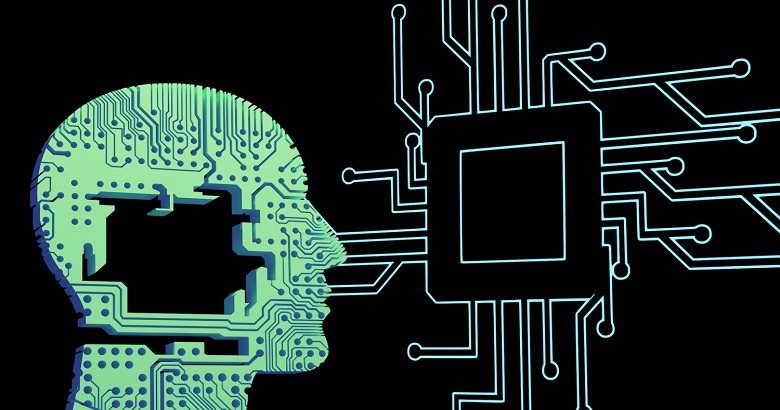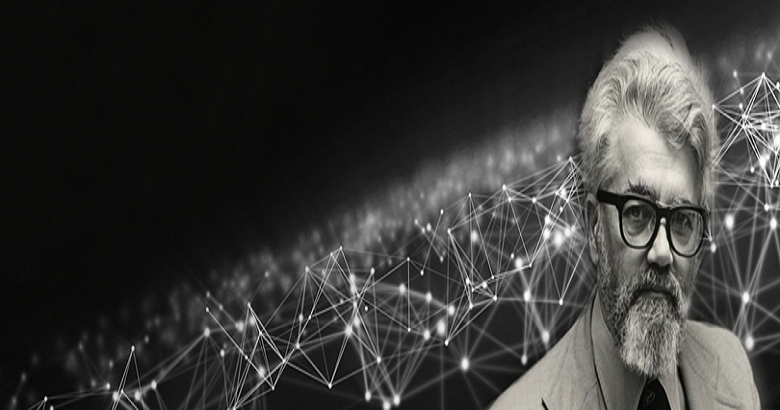Artificial Intelligence (AI) has become one of the most transformative technologies of the modern era, impacting industries from healthcare to finance. But who is credited as the “Father of AI”? This question leads us to a fascinating journey through the history of AI and the contributions of key figures who laid the groundwork for this revolutionary field.
The Genesis of AI
AI’s roots can be traced back to ancient myths and stories that imagined inanimate objects coming to life. However, the scientific pursuit of AI began in earnest in the 20th century. Mathematicians and logicians first explored the concept of machines simulating human intelligence.
Alan Turing: The Visionary
Alan Turing, a British mathematician and logician, is often regarded as a pivotal figure in the development of AI. In 1950, Turing published a seminal paper titled “Computing Machinery and Intelligence,” where he asked, “Can machines think?” He introduced the idea of the Turing Test, a method to evaluate a machine’s ability to exhibit human-like intelligence.
Turing’s work laid the theoretical foundation for AI, proposing that a machine could be programmed to mimic human cognitive processes. His vision and pioneering ideas continue to influence AI research.
The Dartmouth Conference: Birth of AI
The formal birth of AI as a field of study is often linked to the Dartmouth Conference in 1956. Organized by John McCarthy, Marvin Minsky, Nathaniel Rochester, and Claude Shannon, the conference aimed to explore the possibilities of creating machines with human-like intelligence.
John McCarthy, an American computer scientist, is credited with coining the term “Artificial Intelligence” during this conference. The Dartmouth Conference is considered a landmark event that marked the beginning of AI as a distinct field of research.
John McCarthy: The Father of AI
John McCarthy is widely recognized as the “Father of AI” due to his significant contributions to the field. His work extended beyond the Dartmouth Conference, influencing AI’s development for decades.
Contributions to AI
- LISP Programming Language: McCarthy developed LISP (List Processing), a programming language that became the standard for AI research. LISP’s flexibility and powerful data manipulation capabilities made it ideal for AI applications.
- Concept of Time-Sharing: McCarthy also contributed to the concept of time-sharing in computing, which allowed multiple users to interact with a computer simultaneously. This innovation was crucial for the development of interactive computing and AI.
- AI Research and Development: McCarthy’s research focused on formalizing common-sense knowledge and reasoning, a foundational aspect of AI. He advocated for developing intelligent systems that could understand and process human language.
Legacy and Impact
McCarthy’s vision and contributions to AI laid the groundwork for future advancements. His work on LISP and the formalization of AI concepts provided the tools and frameworks needed for further research. McCarthy’s emphasis on common-sense reasoning continues to influence AI research today, as scientists strive to create machines that can understand and interact with the world in human-like ways.
Other Pioneers in AI

While John McCarthy is credited as the “Father of AI,” several other pioneers have made significant contributions to the field.
Marvin Minsky
Marvin Minsky, a collaborator of McCarthy, was instrumental in advancing AI research. He co-founded the MIT Artificial Intelligence Laboratory and made significant contributions to robotics and cognitive psychology. Minsky’s work on neural networks and knowledge representation has been influential in AI development.
Herbert Simon and Allen Newell
Herbert Simon and Allen Newell were pioneers in AI and cognitive psychology. They developed the Logic Theorist, one of the first AI programs that could prove mathematical theorems. Their work laid the foundation for problem-solving and decision-making in AI systems.
Claude Shannon
Known as the “father of information theory,” Claude Shannon’s work on digital circuit design theory and information processing was crucial for AI’s development. His ideas on binary logic and data transmission influenced how machines process information.
The Evolution of AI
AI has evolved significantly since its inception, transitioning from theoretical concepts to practical applications. The field has experienced several phases, each marked by breakthroughs and challenges.
Early Enthusiasm and Challenges
The initial excitement surrounding AI led to ambitious predictions about the creation of intelligent machines. However, the complexity of simulating human intelligence soon became apparent, leading to periods of stagnation known as “AI winters.”
Renewed Interest and Modern AI
Advancements in computing power, data availability, and algorithms sparked renewed interest in AI in the late 20th and early 21st centuries. Machine learning, particularly deep learning, has driven modern AI’s success, leading to applications in image recognition, natural language processing, and autonomous systems.
Current and Future Trends
Today, AI is at the forefront of technological innovation, with ongoing research into areas like ethical AI, explainable AI, and general AI. The potential for AI to revolutionize industries and improve quality of life continues to drive research and development.
Ethical Considerations in AI
As AI technology advances, ethical considerations have become increasingly important. Issues such as bias, privacy, and accountability are at the forefront of AI research and development.
Addressing Bias
AI systems can inherit biases present in training data, leading to unfair or discriminatory outcomes. Researchers are actively working on methods to identify and mitigate bias in AI algorithms to ensure fairness and equity.
Ensuring Privacy
With AI’s ability to process vast amounts of data, privacy concerns have emerged. Developing AI systems that respect user privacy and comply with data protection regulations is crucial for maintaining public trust.
Accountability and Transparency
As AI systems become more autonomous, questions about accountability arise. Ensuring transparency in AI decision-making processes is essential for understanding how and why decisions are made, particularly in high-stakes applications like healthcare and criminal justice.
What is the Fortune of AI?

The future of AI holds immense potential and challenges. Researchers are exploring the development of general AI, systems that possess human-like cognitive abilities across a wide range of tasks. Achieving this goal would represent a significant milestone in AI research.
AI in Everyday Life
AI continues to integrate into everyday life, from virtual assistants to smart home devices. As technology advances, AI’s role in enhancing convenience, efficiency, and connectivity will likely expand further.
AI in Industry
Industries are leveraging AI to optimize operations, enhance decision-making, and drive innovation. From automating routine tasks to enabling predictive analytics, AI is transforming how businesses operate and compete.
AI and Human Collaboration
The future of AI will likely involve increased collaboration between humans and machines. By augmenting human capabilities, AI has the potential to enhance creativity, problem-solving, and productivity across various fields.
Final Thoughts
While John McCarthy is widely recognized as the “Father of AI” for his foundational contributions, AI’s development is the result of collaborative efforts by numerous visionaries and pioneers. From Alan Turing’s theoretical insights to the practical advancements made by McCarthy, Minsky, Simon, and others, the journey of AI is a testament to human ingenuity and the quest to understand and replicate intelligence.
As AI continues to evolve, it builds on the legacy of these pioneers, pushing the boundaries of what machines can achieve. The future of AI holds promise and challenges, and its impact on society will be shaped by ongoing research, ethical considerations, and technological advancements. The story of AI is far from over, and its potential to transform our world is just beginning.
Frequently Asked Questions
1. Who is considered the father of AI?
John McCarthy is widely recognized as the father of AI due to his pivotal role in establishing the field. He coined the term “Artificial Intelligence” and organized the Dartmouth Conference in 1956, which is considered the formal beginning of AI research.
2. What was John McCarthy’s major contribution to AI?
John McCarthy developed the LISP programming language, which became essential for AI research because of its powerful data manipulation capabilities. He also pioneered concepts like time-sharing in computing, facilitating the development of interactive AI systems.
3. How did Alan Turing influence AI?
Alan Turing’s work laid the theoretical foundation for AI. His 1950 paper introduced the Turing Test, a criterion for determining machine intelligence, and he proposed that machines could simulate any human cognitive process, influencing generations of AI research.
4. What was the Dartmouth Conference?
The Dartmouth Conference, held in 1956, was a pivotal event in AI history. Organized by John McCarthy and others, it brought together leading scientists to explore the possibility of creating machines that could think and learn, effectively launching AI as a recognized field of study.
5. Why is AI important today?
AI is transforming industries by improving efficiency, enabling automation, and enhancing decision-making. It’s used in healthcare for diagnostics, in finance for fraud detection, and in technology for developing autonomous systems, shaping the future of innovation.

